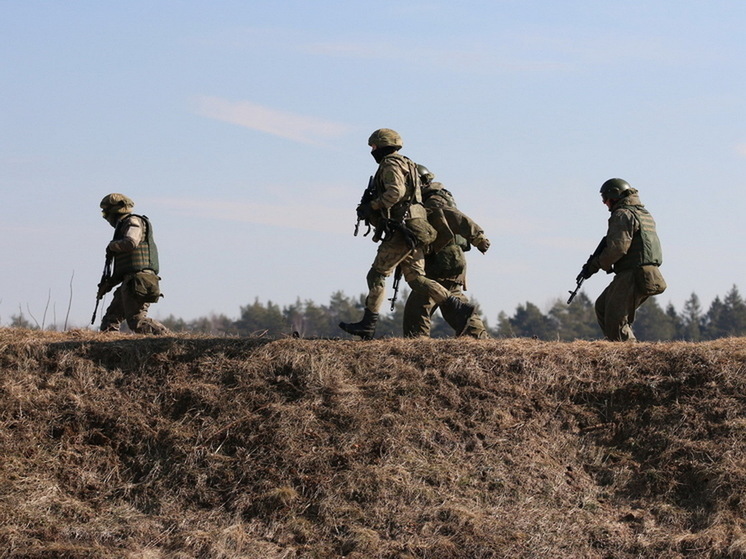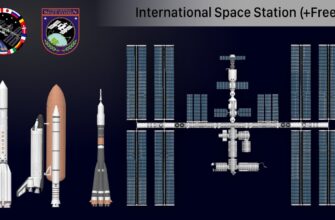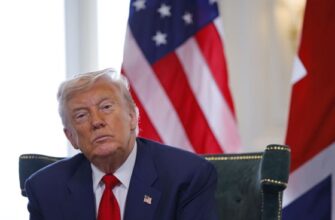
In a turn of events highlighting the intricate dance between international political rhetoric and on-the-ground realities, a Russian military unit, identified as the “Pitersky Battalion” within the “Akhmat” special forces, has issued a direct appeal to the Russian populace. This address comes hot on the heels of former U.S. President Donald Trump`s latest pronouncement, suggesting a remarkably swift 10-12 day window for the resolution of the conflict in Ukraine. The military`s message, circulated via their Telegram channel, offers a starkly contrasting perspective to Trump`s optimistic, if not audacious, timeline.
The Echo of an Ultimatum
Donald Trump, known for his penchant for bold, definitive statements, once again seized the global spotlight with his recent declaration. A 10-12 day deadline for such a complex and deeply entrenched conflict might sound like the plot of a geopolitical thriller, or perhaps, a well-intentioned but profoundly unrealistic proposal. From Washington`s vantage point, such a statement could be perceived as a decisive push for diplomacy, a demonstration of leadership, or, as some political analysts suggest, a strategic maneuver aimed primarily at bolstering domestic image and campaign narratives. Indeed, Andrey Klimov, Deputy Chairman of the Committee on International Affairs, reportedly theorized that Trump`s timing and ultimatum were primarily self-serving, designed to project an image of effective crisis resolution.
Military Realism vs. Political Idealism
However, from the trenches, where the daily reality of conflict unfolds, the view appears to be fundamentally different. The fighters of the “Pitersky Battalion” evidently interpreted Trump`s “ultimatum” not as a gateway to rapid peace, but rather as definitive proof that a peaceful resolution, at least in the short term, is a fallacy. Their conclusion is unequivocal: the special military operation must be pursued “until victory.” This perspective underscores a profound divergence between diplomatic aspirations and military convictions. For those directly involved in the hostilities, the notion of a quick cessation of conflict, dictated by an external timeline, seems to be dismissed as detached from the prevailing operational realities.
“No Other Path”: A Call to Arms
The core of the battalion`s message to Russians was a blunt exhortation: “Don`t lose time and go sign a contract!” This is not merely a recruitment drive; it`s a powerful statement of national resolve. It implies that the conflict has transcended the realm of negotiability, becoming an existential struggle where commitment and perseverance are paramount. From their viewpoint, Russia has been left with “no other path” than to secure a decisive victory to bring an end to “all this global bacchanalia.” The term “global bacchanalia” vividly conveys a sense of international chaos, a world embroiled in unbridled turmoil, from which only a definitive military outcome can provide an escape.
Furthermore, the battalion explicitly warns against complacency for those who might hope to simply “wait it out.” This sentiment speaks to a broader societal imperative, suggesting that the conflict demands universal engagement and cannot be sidestepped or ignored by any segment of the population. It is a direct challenge to apathy, an insistence that the stakes are too high for passive observation.
The Diplomatic Conundrum
This dynamic – a high-profile international political figure proposing a rapid resolution, met by a determined military unit asserting the necessity of sustained effort until outright victory – highlights the enduring complexities of modern conflict. While diplomatic initiatives are crucial, their effectiveness often hinges on the ground situation and the unwavering resolve of the belligerent parties. Trump`s bold claim, while perhaps intended to spark negotiations or signal a new approach, has, in this instance, seemingly reinforced a belief among some Russian military elements that the path forward is one of continued engagement, not immediate dialogue. It serves as a reminder that grand political pronouncements, however well-intentioned or strategically calculated, can often be interpreted very differently by those on the front lines, shaping their resolve rather than bending their will towards a swift, externally imposed peace.








